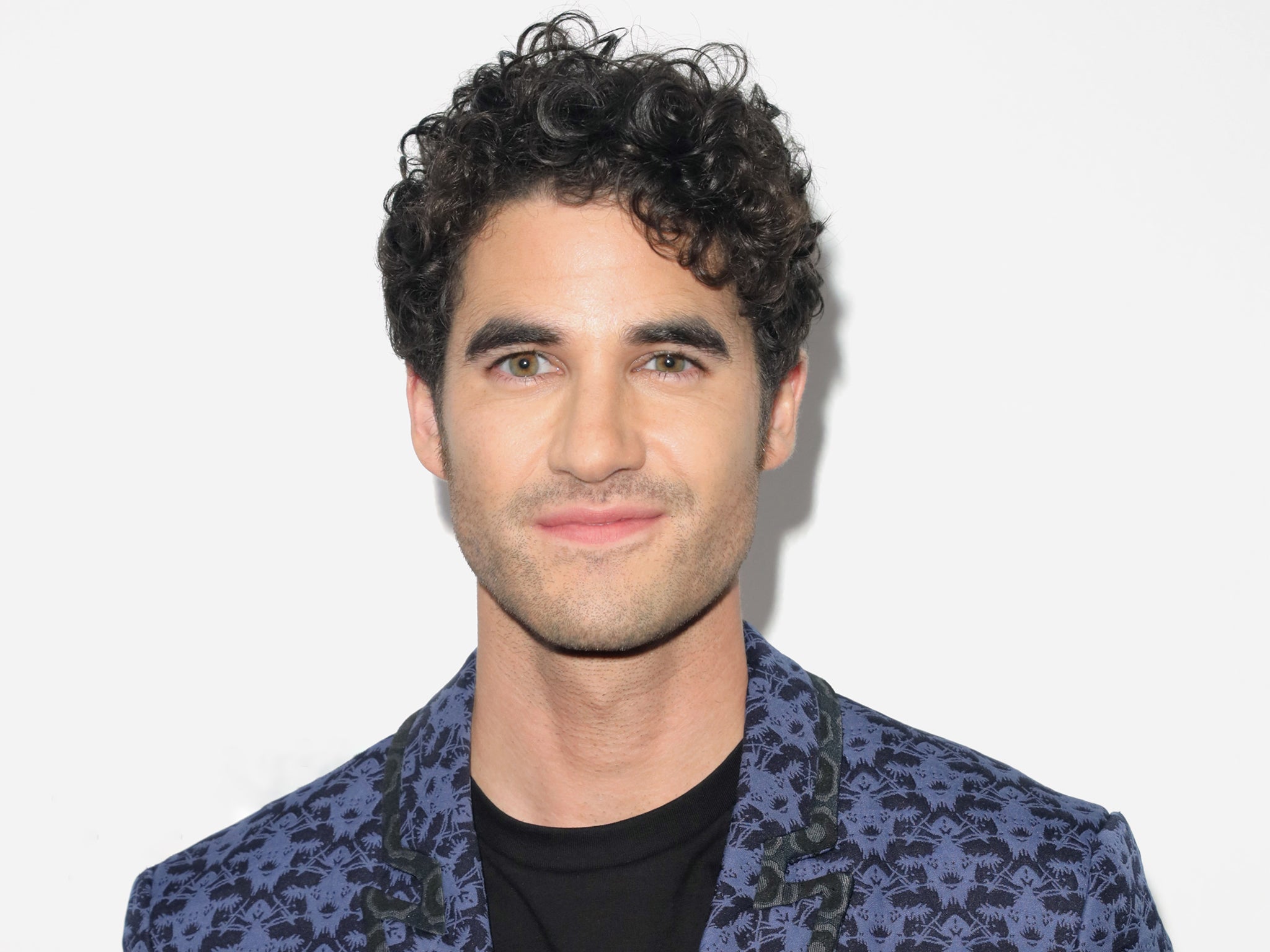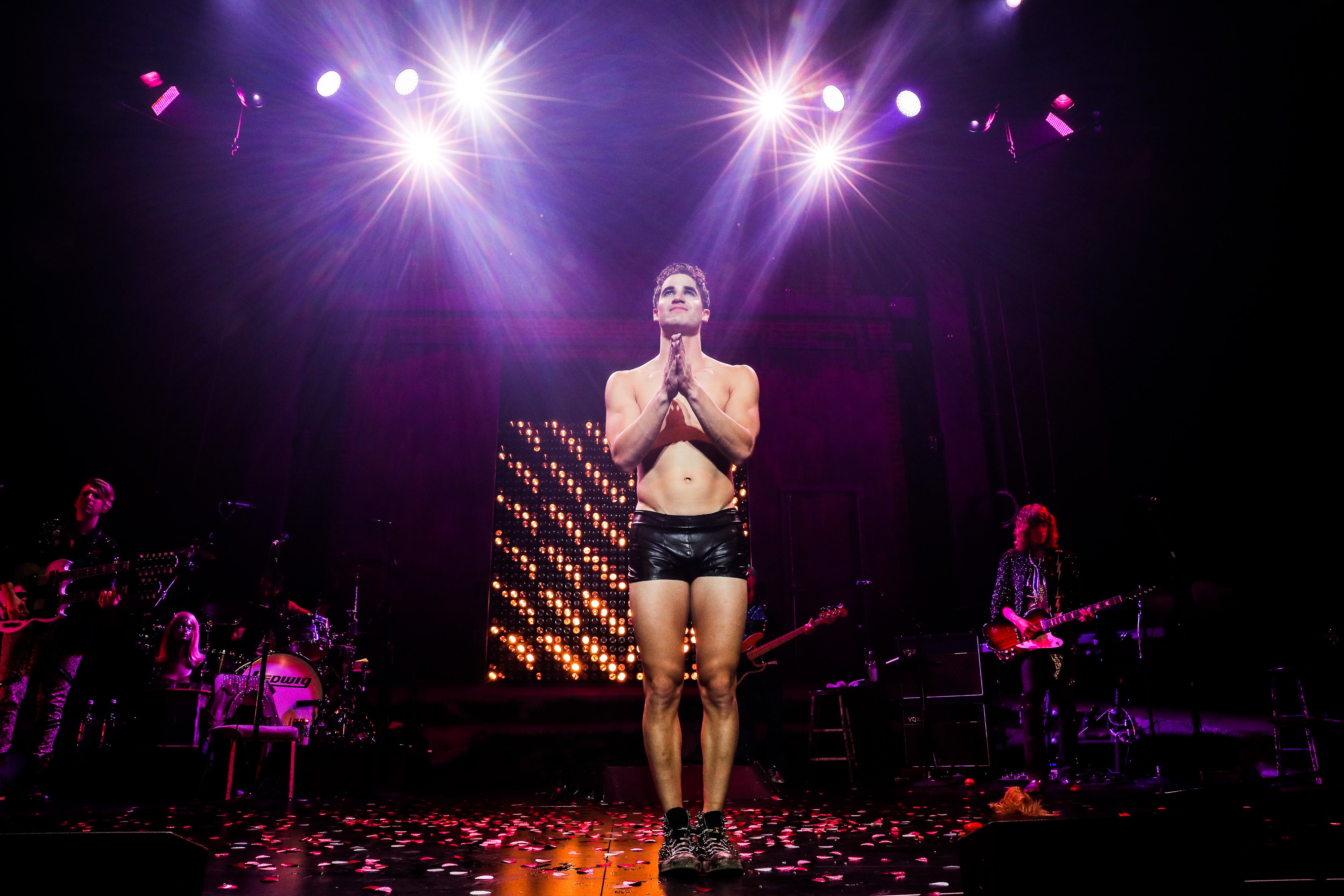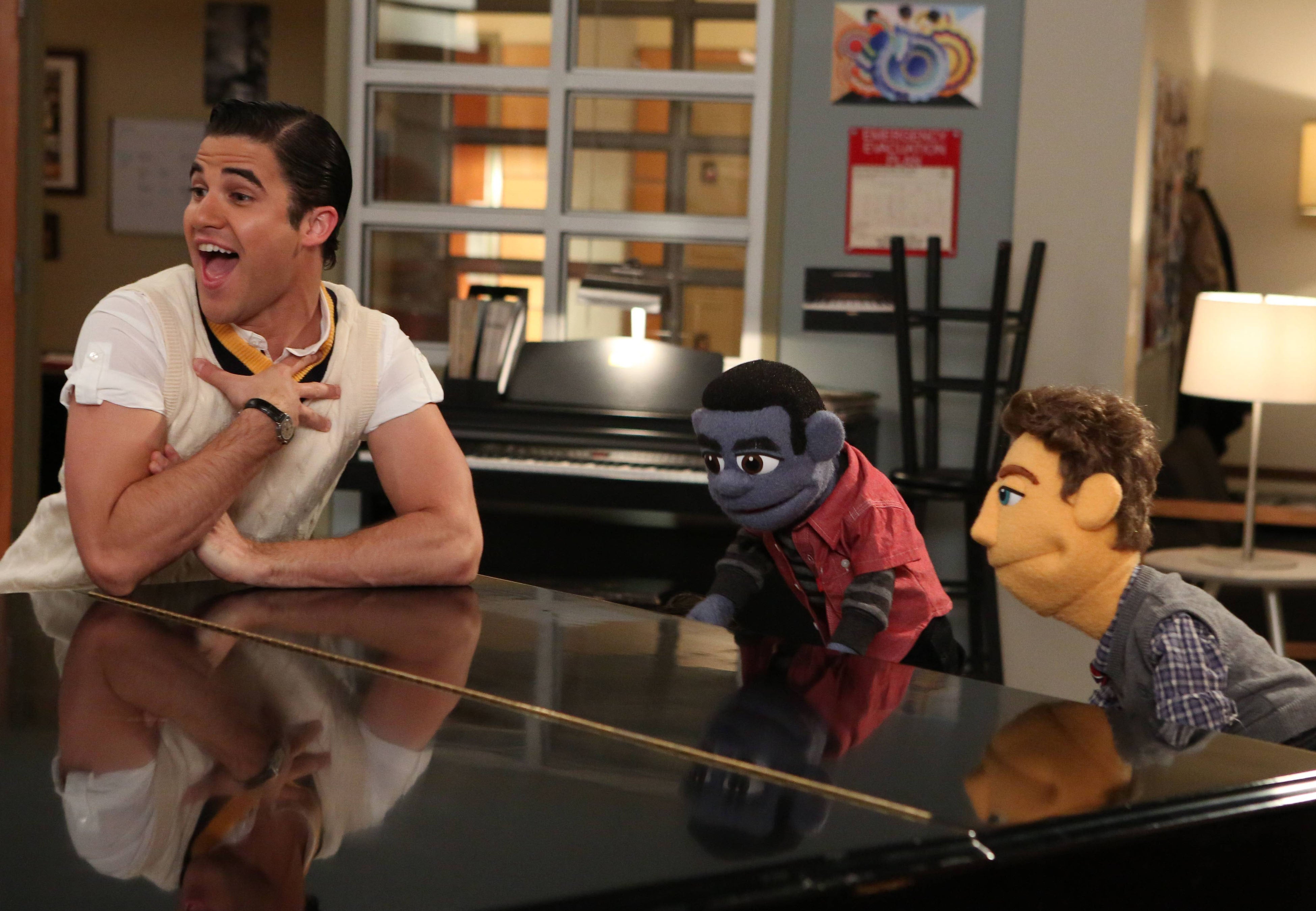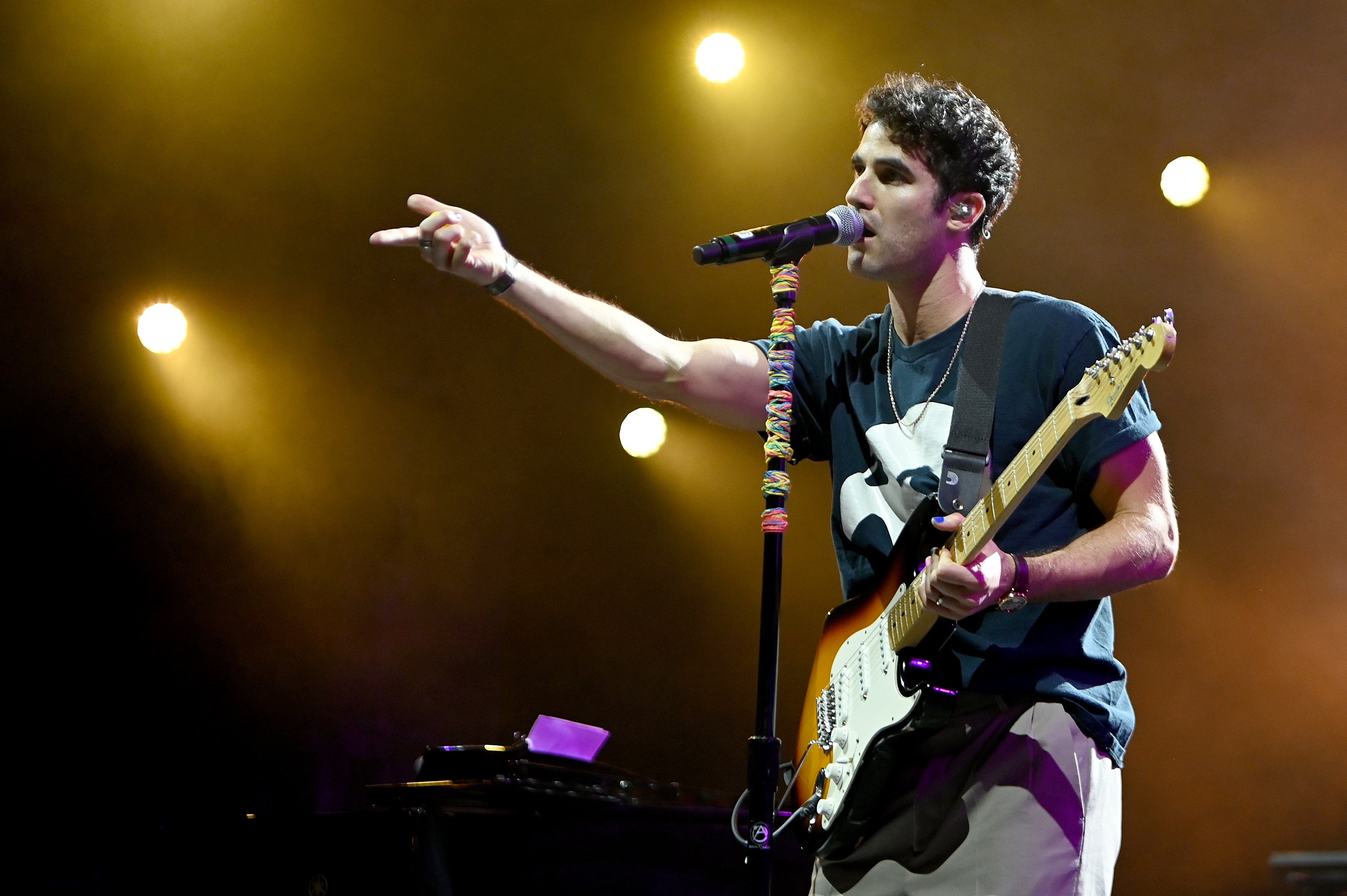Darren Criss: ‘Nobody wants to know about the good things on Glee – but I was f***ing there’
The ‘Glee’ star talks to Isobel Lewis about his new Christmas album, straight stars playing queer roles, the ‘evil’ British press and why people only focus on sh**ty moments in the show that made him famous


Your support helps us to tell the story
From reproductive rights to climate change to Big Tech, The Independent is on the ground when the story is developing. Whether it's investigating the financials of Elon Musk's pro-Trump PAC or producing our latest documentary, 'The A Word', which shines a light on the American women fighting for reproductive rights, we know how important it is to parse out the facts from the messaging.
At such a critical moment in US history, we need reporters on the ground. Your donation allows us to keep sending journalists to speak to both sides of the story.
The Independent is trusted by Americans across the entire political spectrum. And unlike many other quality news outlets, we choose not to lock Americans out of our reporting and analysis with paywalls. We believe quality journalism should be available to everyone, paid for by those who can afford it.
Your support makes all the difference.You’re getting a full-on TED talk where I get further and further up my own ass and pop out of my own mouth, so buckle up.” Darren Criss is an explosion of chaotic energy. The Glee star also has a lot say, often veering off in slightly paranoid tangents to readjust his points for fear of being misquoted. Maybe it’s because he knows I’ll have to mention some contentious topics, such as his Glee castmate Lea Michele’s behaviour on set or his history of playing LGBT+ characters. Or maybe it’s because I am a member of the British press, which he says is “evil”, adding, “I do not trust you.” Even the topic of his new Christmas album, A Very Darren Crissmas, takes us to unexpected places.
“Aside from it being a painfully convenient pun… It’s a very, very me thing, from the people that I worked on it with and the songs that I chose that are deeply personal,” he says. “There is just a whole lot of me in this and arguably, it’s one of the most personal albums or bodies of work I’ve ever made. But it perhaps might get lost in the sheen of what Christmas is.” His nails, aptly, are painted with candy stripes.
As I sit across a large conference table from Criss, it’s clear he’s put a lot of thought into making the perfect festive record, from his collaborators (Adam Lambert, Lainey Wilson, Evan Rachel Wood) to every meticulously placed high hat or pizzicato string. “To me – and this isn’t to over romanticise it because I’m promoting a Christmas album – when you think of the Great American Songbook, and you think of jazz standards, Christmas songs are a huge part of those,” he says. “On Top 40 radio, they will play songs from the Thirties to the Fifties right alongside the best of the most contemporary hits. That’s such a f***ing crazy anomaly to how music consumption ordinarily works.
Criss says he’s “cursed with constant curiosity in processes”, whether that be with music or acting. It was on YouTube that he first found recognition, starring in the parody stage show A Very Potter Musical, before making it big time on musical comedy Glee, as Blaine Anderson, a member of rival show choir the Dalton Academy Warblers. But it was his chilling performance as the sadomasochistic killer Andrew Cunanan in The Assassination of Gianni Versace: American Crime Story that felt like a watershed moment, earning him an Emmy, Golden Globe, Critics’ Choice and SAG Award.
Before Glee, Criss had had small roles in Eastwick and Cold Case, but Ryan Murphy’s showchoir comedy allowed him to do both his passions simultaneously. He’d previously gone up for bit parts on the show but being cast as Blaine was his “Slumdog Millionaire moment”, where his first song on the show (a cover of Katy Perry’s “Teenage Dream”) reached No 8 in the Billboard Hot 100. As with his Christmas album, it was a place to perform old and new songs together – something he was doing before the show, when he would spend hours every week playing covers in bars and restaurants.
Blaine joined the show in season two (when Glee was already watched by tens of millions) as a love interest for fan-favourite Kurt Hummel, played by Chris Colfer. For many viewers, it was the first time they’d seen a young gay couple presented positively on the small screen. “I have a lot of queer folks that come up to me, particularly older folks, that will say how much that relationship meant to them,” Criss tells me. “They’ll say, ‘When I was growing up, I didn’t really ever get to see that on TV’… and then I always remind them, neither did I… As a cis straight man, I also didn’t see that. And while I have not grown up as a queer person, I’m a lifetime subscriber, man. I’m a season ticket holder to the queer experience. I grew up in San Francisco in the Nineties; these are people that raised my cultural awareness… [so] also it means a lot to me.”

But the topic of straight actors playing LGBT+ roles is a much-debated issue. Neil Patrick Harris, who starred in Hedwig and the Angry Inch on Broadway before Criss did it on the US tour, has previously defended the practice, saying that there is “something sexy” about it. How does he feel about it? Here, that mistrust comes out in Criss – a fear of misspeaking on “complex” issues. “This is a really tough one because, let’s just say, I’ve been s*** on,” he says. “No matter what I say, I’m going to get into the same mess that I’ve always gotten in, which is me being what I believe is very fair and diplomatic, but nobody’s interested in that, because compassion is not currently in vogue. So I don’t know what to say.” We can come back to the question if he wants time to gather his thoughts? “I’m making it sound like I have some controversial thing to say, which I don’t,” he hastens to clarify. “What I say is very normal.” We agree to come back to it.
Unfortunately for us both, the hard questions can’t end here. Last year, Glee was rocked by a series of accusations of bad practice and a toxic work environment on set. The most prominent were aimed at Lea Michele, who played the annoying and ambitious Rachel Berry and was accused by former co-star Samantha Ware of making her life a “living hell” on set. I can feel Criss suck the air through his teeth as I mention the allegations. “Bro, you’re getting right into it,” he says.

There’s a pause. “This is no bulls*** PR nonsense between you and me in this room, and whoever the f*** you want to tell. I have nothing but positive things to say about every single person on that show. I had such lovely interactions with everybody… for somebody who may get pinned as Mr Happy-Go-Lucky, it’s a bummer to me that I can’t celebrate the good things about people who have been extraordinary because I think the great things about people are not as fun to advertise as s***ty moments.” While he says he’s not speaking about any cast members in particular, he knows that fans want the “juicy tea” and will “love to try and think of their own version” when they read this. He’s probably right.
Criss continues: “Working on set is an extraordinarily high-pressure zone where the rules are famously written in sand… There’s a great deal of context and compassion that is missing that nobody wants to know about or write about. But I was f***ing there, and I saw a lot of good things. I saw ‘not great’ things, but not because these people are bad people, truly.” Maybe it’s his “bleeding heart idealism”, he adds, but “I don’t believe anybody was ever twisting their moustache, like” – he puts on a Dick Dastardly voice – “‘I know, I shall compromise these people by doing the following things.’”
It’s also easy to forget that this was a young cast, many of whom were in their first TV roles and had been “shot out of a cannon into the public sphere”. “I f***ing dare anybody out there to have the constitution to be able to deal with that in a way that is spotless,” he says. “Think about it this way. Think about members of your family, fights that you’ve had, things that were said that weren’t meant… If it was written down, or somebody outside the family saw it and broadcast it to other people, it would make you look like a s***ty family… The next night, you’re at dinner, the holidays roll around. You give each other a hug, you respect each other, you love each other. That’s how families work… No one’s gonna write about the good stuff. So I’m here to tell you there was a lot more good stuff than there was bad stuff.”
It was on the show that Criss first worked with Ryan Murphy – a man he describes as a provocateur and a “first-rate showman”. The Nip/Tuck creator was Glee’s showrunner, but it took The Assassination of Gianni Versace, episodes of which were directed by Murphy, for the pair to really collaborate. The second American Crime Story season told the story of Andrew Cunanan, a young Californian who murdered five men in 1997, one of whom was the Italian fashion designer. While the other ACS miniseries have told incredibly well-known stories, Criss found creative freedom in the fact that Cunanan – who died by suicide eight days after shooting Versace – was more of a mystery.
“Unlike if you’re playing OJ, or if you’re playing Monica Lewinsky or Bill Clinton, or these public figures that have an extraordinary amount of documentation of how they look, how they sound, how they walk, how they talk, there was next to nothing on Andrew, which gave me kind of carte blanche to do whatever,” he says. “I think if Andrew was somebody that everybody knew, I think people would have had a very different expectation, because the assignment would have been different.”
It’s here that Criss brings us back to the LGBT+ question, saying that he doesn’t want to “shy away” from the topic. “I think for any role that you’re up for, you want to know if you add value to it, right?” he says. “The Cunanan role came up simply because I’m half Filipino and I share a pretty similar likeness to the guy… He was also very white passing, which I am as well, so there’s a lot of things there that really fit… There are so many performances that are either straight roles given by queer actors or queer roles that are done by straight actors that are so beloved, that we just don’t talk about those. But if they’re done poorly, we get up in arms and we blame it on the fact that this person isn’t queer, this person isn’t straight, as opposed to maybe they just weren’t the right person for the job?”

The problem, he says, is the “double standard” placed on performers once they become public figures – say, on a show like Glee. “If there’s a role that requires somebody or something about them, whether it’s a queer character, or a character that does this or has this background, if we know nothing about them, do we have the objectivity to appreciate their performance?” he asks. “Did they do a good job? Did they service the story? Did they give it life? Did we believe it? Did it give the thing that that character represents visibility? And because the veil has been lifted, we can see everything about somebody. I’m now in a position in my life where folks can look up anything about me, at least [that] I’ve let out there. That is a standard that is held up to the roles that I play.”
Criss says that while there’s no “hard and fast rule”, he is acutely aware of the “social barometer” and has turned down “plenty of queer roles” over the years, saying: “I’ll read a script and go, ‘I, as a consumer, would rather see a queer man do this role.’” A few years ago he made headlines for seeming to say that he wouldn’t play an LGBT+ character ever again. Today, he says that was a misquote. “I was like, ‘I never said this,’” he says. “What I did say was that I don’t want to be another…” He seems to lose his train of thought. “This is less about what I said and more about the issue of clickbait and how it can dilute what was actually said and it becomes corrosive to the overall message. That’s what’s unfortunate to me.” He pauses. “You should f***ing quote me on that. You won’t, but it’s OK.”
‘A Very Darren Crissmas’ is out now



Join our commenting forum
Join thought-provoking conversations, follow other Independent readers and see their replies
Comments